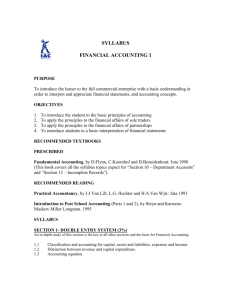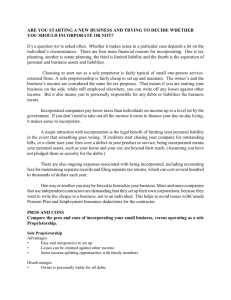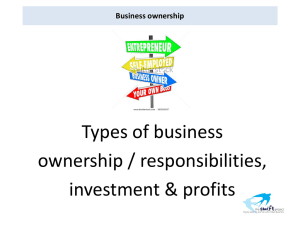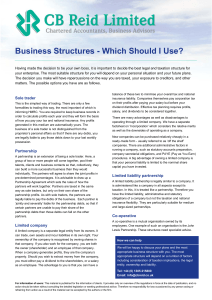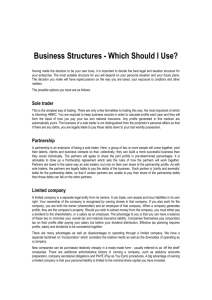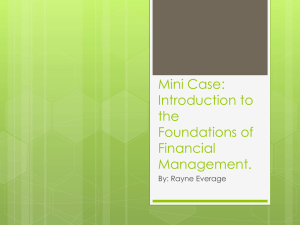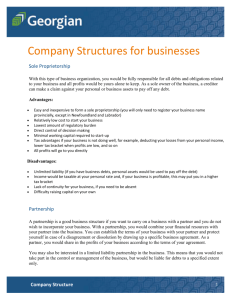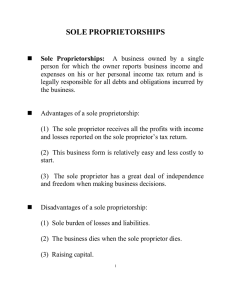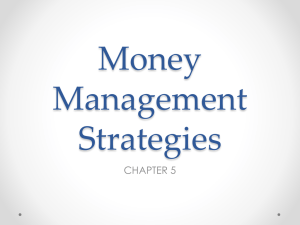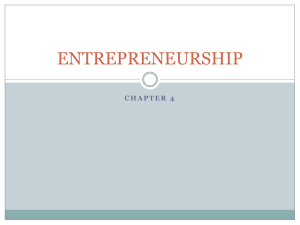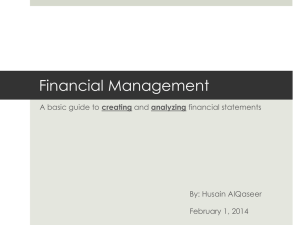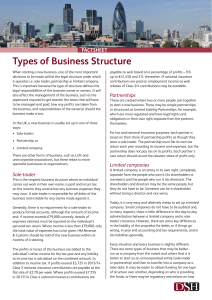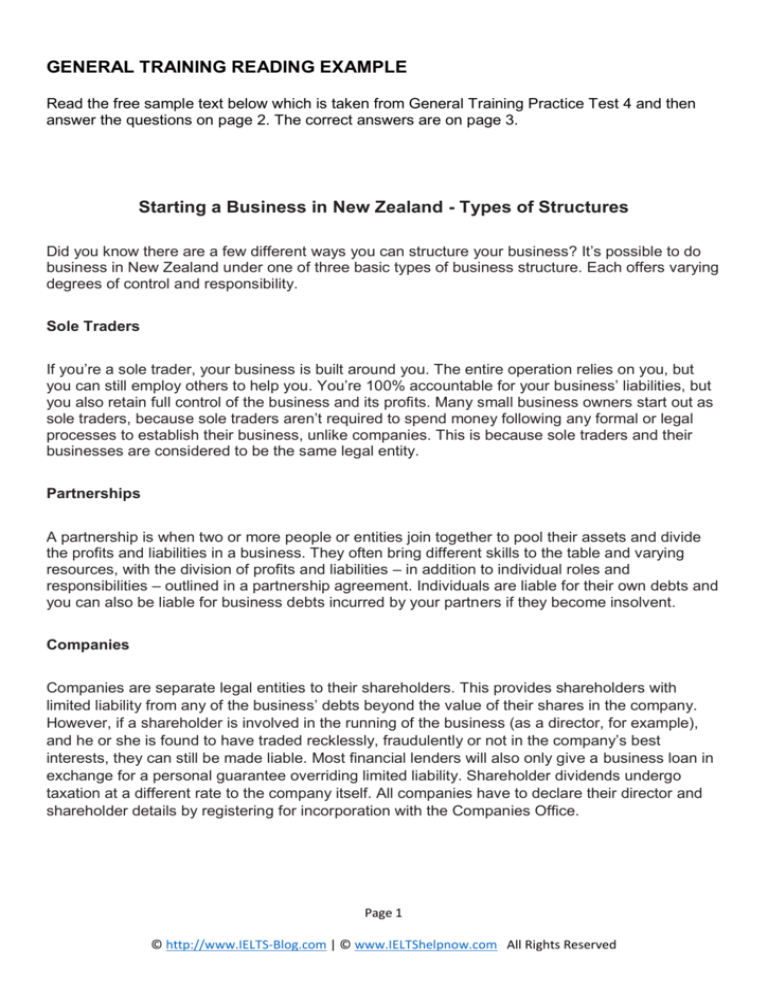
GENERAL TRAINING READING EXAMPLE
Read the free sample text below which is taken from General Training Practice Test 4 and then
answer the questions on page 2. The correct answers are on page 3.
Starting a Business in New Zealand - Types of Structures
Did you know there are a few different ways you can structure your business? It’s possible to do
business in New Zealand under one of three basic types of business structure. Each offers varying
degrees of control and responsibility.
Sole Traders
If you’re a sole trader, your business is built around you. The entire operation relies on you, but
you can still employ others to help you. You’re 100% accountable for your business’ liabilities, but
you also retain full control of the business and its profits. Many small business owners start out as
sole traders, because sole traders aren’t required to spend money following any formal or legal
processes to establish their business, unlike companies. This is because sole traders and their
businesses are considered to be the same legal entity.
Partnerships
A partnership is when two or more people or entities join together to pool their assets and divide
the profits and liabilities in a business. They often bring different skills to the table and varying
resources, with the division of profits and liabilities – in addition to individual roles and
responsibilities – outlined in a partnership agreement. Individuals are liable for their own debts and
you can also be liable for business debts incurred by your partners if they become insolvent.
Companies
Companies are separate legal entities to their shareholders. This provides shareholders with
limited liability from any of the business’ debts beyond the value of their shares in the company.
However, if a shareholder is involved in the running of the business (as a director, for example),
and he or she is found to have traded recklessly, fraudulently or not in the company’s best
interests, they can still be made liable. Most financial lenders will also only give a business loan in
exchange for a personal guarantee overriding limited liability. Shareholder dividends undergo
taxation at a different rate to the company itself. All companies have to declare their director and
shareholder details by registering for incorporation with the Companies Office.
Page 1
© http://www.IELTS-Blog.com | © www.IELTShelpnow.com All Rights Reserved
Questions 21 – 27
Do the following statements agree with the information given in the text?
In boxes 21 – 27 on your answer sheet write:
TRUE
if the statement agrees with the information
FALSE
if the statement contradicts the information
NOT GIVEN
if there is no information on this
21
All company expenses can only be paid at the end of every three months.
22
Employees can claim for food when staying at a hotel on company business.
23
Employees can only claim for using their car when the company cars are not available.
24
Employees cannot claim back any money on their personal cell phone contract, even
when they use it for company purposes.
25
Employees can claim some money back on their own home Internet connection if they
use it sometimes for work purposes.
26
Employees cannot claim taxi expenses for their customers when entertaining.
27
No expenses can be paid without production of the relevant receipt.
Page 2
© http://www.IELTS-Blog.com | © www.IELTShelpnow.com All Rights Reserved
ANSWERS
21.
FALSE
22.
TRUE
23.
NOT GIVEN
24.
TRUE
25.
TRUE
26.
NOT GIVEN
27.
FALSE
Need more practice? Visit the websites below for more IELTS practice tests, complete with
audio and answers:
http://www.IELTS-Blog.com
http://www.ieltshelpnow.com
Page 3
© http://www.IELTS-Blog.com | © www.IELTShelpnow.com All Rights Reserved

